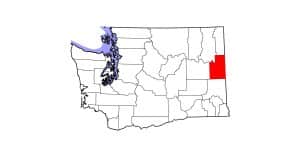Two New York Horses Dead After Contracting EEE

The first, an unvaccinated 10-year-old Belgian gelding from Jefferson County, presented with clinical signs, including rapid right-to-left eye movement, recumbency (down and unable to get up), intermittent seizures, and being unaware of his surroundings, on Aug. 1. He was subsequently euthanized.
The second, an unvaccinated 3-year-old Belgian filly from St. Lawrence County, experienced onset of clinical signs on Aug. 2. Signs included fever, difficulty swallowing, circling, dragging her feet, crossing her feet while walking, leaning, severe ataxia (inability to control bodily movements), and decreased awareness of her surroundings. The horse is reported as deceased.
EEE 101
Eastern equine encephalomyelitis is caused by the Eastern equine encephalitis virus, for which wild birds are a natural reservoir. Mosquitoes that feed on EEE-infected birds can transmit the virus to humans, horses, and other birds. Horses do not develop high enough levels of these viruses in their blood to be contagious to other animals or humans. Because of the high mortality rate in horses and humans, EEE is regarded as one of the most serious mosquito-borne diseases in the United States
Create a free account with TheHorse.com to view this content.
TheHorse.com is home to thousands of free articles about horse health care. In order to access some of our exclusive free content, you must be signed into TheHorse.com.
Start your free account today!
Already have an account?
and continue reading.
Written by:
Edited Press Release
Related Articles
Stay on top of the most recent Horse Health news with












